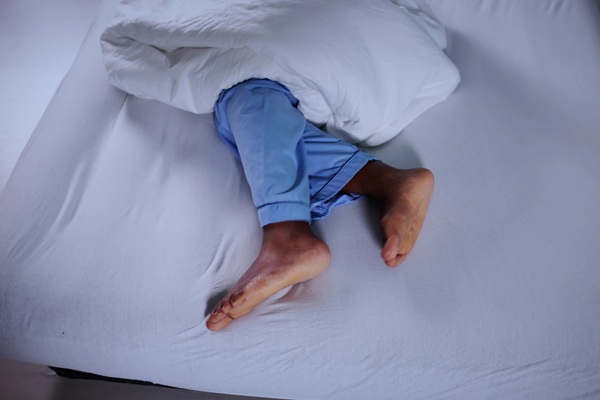What a Suboxone Doctor Does

A Suboxone doctor is a medical professional that offers Suboxone®, a drug that is used to treat drug dependency. Suboxone doctors often practice under other titles, and they are typically mental health professionals such as psychiatrists. They usually offer other services as well, such as psychotherapy and antidepressants.
The role of a Suboxone doctor
Suboxone doctors help patients with drug use disorder or drug addiction through the entire treatment process, from diagnosis to ensuring they have the long-term care they need to stay sober after overcoming their addiction. The following is an overview of what a Suboxone doctor does and how they can help patients who struggle with drug addiction.
What is Suboxone?
Suboxone is an FDA-approved medication that is used to help relieve dependency on drugs (especially prescription drugs). Suboxone is a brand name, and the name of the active ingredient in Suboxone is buprenorphine and naloxone.
Diagnosis
Suboxone doctors are medical professionals. As such, they can assist in the diagnostic process, if necessary. This may include a thorough review of the patient’s medical history and symptoms they experience and ordering diagnostic tests and toxicology tests. Many psychiatrists that offer Suboxone also conduct psychological examinations to determine if there are any mental health conditions that may affect the drug addiction or the patient’s ability to overcome their drug addiction. An accurate and in-depth diagnosis is always the first step to successful long-term treatment.
Suboxone treatment
Suboxone is an FDA-approved method of treating drug dependency, especially a dependency on opioid drugs. Suboxone doctors typically recommend Suboxone to patients who have not been able to overcome their drug dependency through other methods of treatment. There are two forms of Suboxone, which are Suboxone films that are placed under the tongue and tablets that are taken orally. Suboxone treatment is typically recommended in conjunction with other methods of treatment, such as lifestyle changes, dietary changes, exercise, and other changes that may reduce the urge to use drugs.
Psychotherapy
As mentioned, many Suboxone doctors are licensed and practicing mental health professionals, such as a psychiatrist or a psychologist. They typically offer psychotherapy, also called talk therapy. There are different types of psychotherapy that a Suboxone doctor may recommend, including but not limited to:
- Cognitive-behavioral therapy (CBT)
- Psychodynamic therapy
- Dialectical behavioral therapy
- Support groups
- Family therapy
CBT is the most common type of psychotherapy. It is for patients with a range of mental health conditions, including depression and anxiety disorder. Patients with drug addiction can also benefit from CBT and other forms of psychotherapy.
Antidepressants
Often, drug abuse and depression (and other mental health concerns) go hand in hand and contribute to one another. For psychiatrists that offer Suboxone, they may also prescribe antidepressants. Suboxone works in a different manner than antidepressants, so it is generally considered safe and often useful to use both in conjunction with one another, particularly for patients who need treatment for drug abuse and mental health conditions such as clinical depression.
FAQs about Suboxone treatment
The following are answers to common questions about Suboxone treatment for drug dependency that does not improve through alternative methods of treatment.
Does Suboxone cause side effects?
Suboxone may produce negative side effects. It is important to only take Suboxone that is prescribed by a doctor who monitors your treatment plan. Potential side effects of Suboxone include:
- Nausea/vomiting
- Headache
- Fever and sweating
- Dizziness
- Constipation
- Numb mouth
It is important to immediately report side effects to your Suboxone doctor. In many cases, side effects are mild and short-lived. However, more severe side effects may require the patient to stop taking the medication.
Does Suboxone help treat anxiety?
Suboxone is not intended as an anxiety treatment. Although, many patients who deal with both drug dependency and anxiety report both concerns improving with Suboxone treatment. With that said, it is important not to use Suboxone to treat an anxiety disorder.
Why does Suboxone make me feel good?
Suboxone produces a similar effect as opioids, allowing the patient to experience a similar euphoric effect. However, this feeling is usually not as intense and lasts longer. The goal is for Suboxone to not be necessary at the completion of treatment.
Speak with a Suboxone doctor during a consultation
You can schedule a consultation with a Suboxone doctor by giving us a call or sending us an email today. During your first visit, we can discuss your goals for treatment and get you started on a path towards a full recovery from drug addiction.
Get more information here: https://www.hopetmsofny.com or call Hope TMS and Neuropsychiatric Center at (646) 578-8152
Check out what others are saying about our services on Yelp: Read our Yelp reviews.
Recent Posts
Restless leg syndrome can make evenings difficult by creating an urgent need to move the legs when the body tries to rest. Considering symptoms like crawling or pulling often intensify at night, sleep quality can drop, and daytime energy can follow. With the right support, many people can manage their symptoms and get a good…
PTSD syndrome can shape your daily experiences in significant ways, from your emotional balance to your physical health and personal stability. Symptoms of PTSD can become an invisible burden that affects your routine and interpersonal connections. While these symptoms vary from person to person, they can impact every corner of your life without the right…
Adult ADHD therapy supports individuals navigating challenges with focus, time management, and emotional regulation. While attention deficit hyperactivity disorder, or ADHD, is commonly diagnosed in childhood, its symptoms can persist into adulthood, often interfering with careers, relationships, and daily tasks. Professional therapy offers a structured approach to managing these difficulties and building long-term strategies for…
Transcranial magnetic stimulation, also known as TMS treatment, is an innovative and noninvasive therapy for several mental health conditions. By using magnetic fields to stimulate specific areas of the brain, TMS is an effective treatment for cases where traditional methods have provided little to no relief. It is important to know which mental disorders are…


